Chapter: 11th Political Science : Chapter 5 : Democracy
Theories of Democracy
Theories of Democracy
A theory is defined as an explanation of a concept
in its historical account and different stages of its development. A theory
could be tested in different countries and different cultures to examine its
importance and application. A theory is based on several facts that are
logically connected and examined. Democracy is a theory that has various
applications in different historical periods, different civilizations and cultures.
The Ancient theory of Democracy emerged in Ancient
Greece that saw the rise of several city-states (polis) which believed and
applied the procedure of Direct election, Debating of public policies and
Decision by the people. Greek Civilization, Culture and Language spread widely
throughout Europe in the ancient historical period. And it also saw the spread
of democracy as a “form” and “system” of government initially in Europe and
later into North and South America.
As the Greek polis increased in size the nation of
democracy by elected representatives gained importance and relevance.
Representative democracy later emerged as the dominant form and system of
government in the European Middle Ages, the Age of Enlightenment. The mass
popular demand for Democracy was made in the American (1775-1783) and French
Revolutions (1789-1799).
Democracy has now emerged as a “universal” form of
government widely accepted by several countries with various people groups,
cultures and languages. It has developed in each country according to their
local customs, values and ideas thus strengthening the process of democracy.
There are various Theories of Democracy defined in
terms of scope and impact:
Classical Democracy:
Emerged as a direct form of
democracy in Ancient Greece. Athens was the first city to introduce such a
democracy. Direct democracy in Athens emerged in between 800-500
BCE (Before Common Era). In Athenian direct democracy, the citizens of the
city-state are all as members of the assembly, who participated directly in the
decision making and the process of legislation. Given the limited population
they were able to gather in the city square and were able to deliberate. All
citizens were free to express their different opinions, debate, and vote in a
system directly and this was called as Classical Democracy.
As population increased, the idea of representation
in government was proposed. It resulted in the elected representatives
participating in the governing process. Gradually it created institutions like
the Assembly of the Demos, the Council, and the People’s Court as the three
important pillars of democracy. Classical democracy for its success should have
two preconditions:
The community must be small
enough for citizens to be proficient in attending debates and voting on issues;
b) the economy of the state should be sufficient for enabling the citizens to
engage in politics. The principles of classical democracy are mentioned below:
·
The chief political ideals were
equality among all people, liberty and respect for law and justice.
·
Equality before law and equal
treatment of law enabled justice to prevail in almost all the spheres of
society. Political life was free and open.
The main subject of classical democracy was the
participation of all peoples in the processes of state. Classical democracy was
to bring equality among citizens in respect of rights and privileges.
Protective Democracy:
As Classical Democracy grew it began to take shape
into protective democracy in Athens which was by the emphasis on different
aspects of classical democracy. In this viewpoint, democracy has been regarded
as a means at the disposal of individuals which they can use to safeguard their
rights and liberties. Protective democracy as a Rights-based democracy emerged in
the late seventeenth and early eighteenth centuries placing it as an instrument
of protecting human rights and liberties. The English thinker John
Locke
(1631-1704) was regarded as the great advocate of protective
democracy. Locke argued that the citizen’s freedom and right to vote was
based on the existence of natural rights characterized by Life, Liberty and
Property.
Protective Democracy was proposed by English
thinkers Jeremy Bentham (1748-1832) James Mill 1773-1836) and John
Stuart Mill(1806-1873) of the Utilitarian School of Democracy and
Rights. Utilitarianism was powerfully advocated in favour of protective
democracy. The theme of utilitarianism was to safeguard rights, liberty and
opportunity as they were the basic principles of democracy. Safeguarding the
rights was the safeguard of democracy.
Jeremy Bentham, James Mill and John
Stuart Mill emphasized that democracy alone could safeguard all
individual rights and interests through the mandate of the people who could be
protected and advanced. John Locke, James Madison, Jeremy Bentham and
James Mills-supported the Rights based protective democracy as
an aspect of liberal democracy. The following are the basic features of
protective democracy:
·
Protective democracy
believes in popular sovereignty.
·
Both the popular
sovereignty and representative form of government are
legitimate.
·
It is the primary
duty of the state to protect the rights nd liberties of citizens.
·
The authority is
accountable to the People and in order to establish it elections are held on regular
basis.
·
Separation of the
Legislature, Executive and Judiciary are the most important means of protecting the
rights, liberties and the distribution of privileges.
·
The
introduction of rights-based protective democracy brought in the idea of constitutionalism
that governed the ruler and the ruled by the principles laid down in
constitution. The Constitution is the sole source of power for all and is the
guarantor of rights and liberties. Legal provisions in the constitutions were
introduced to protect, individual rights, rights of associations and groups
against any violation of rights or encroachment on liberty on behalf of
citizens. This brought in a competition among the Legislature, Executive and
Judiciary in all spheres for the strengthening of protective democracy.It
resulted in a clear distinction between state and civil society.
Marxist Theory of Democracy
The Marxist theory views the democracy in the
social context of class analysis during the era of industrial revolution.
Society was divided into two classes viz: capitalists or owners of the property
are called as ‘bourgeois’ and the working class is called as ‘proletariat’. The
Marxist theory of Democracy held the political position to always challenge the
dominance of capitalists and against the exploitations of working class. The
Marxist theory of democracy did not support electoral rights, but strongly
supported economic rights and the creation of ‘socialist democracy’.
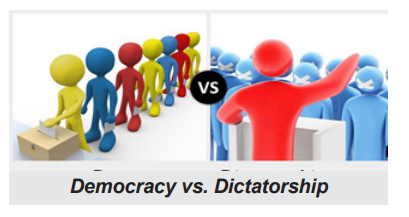
The Marxist theory of Democracy favoured the
collapse of capitalism and calls for the revolutionary transformation of the
society. It believes that political power is possible only through the ideals
of ‘socialism’; and is based on the equal distribution of economic power
against the unequal wealth and ownership of production. The Marxists democrats
and socialists believe in the removal of class differences and privileges are
the necessary step to freedom, equal status and democracy.
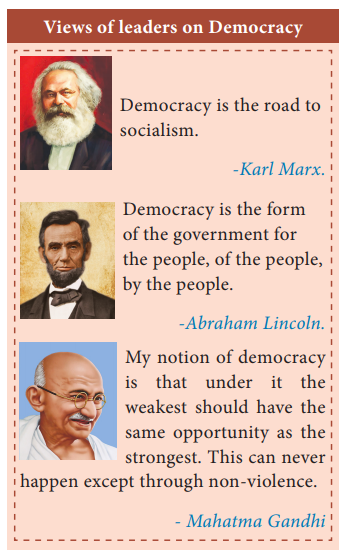
The socialists believed that with universal
education people can govern themselves. The Marxist theory criticises the
falseness of the liberal democracies are thus seen as ‘capitalist’ or
‘bourgeois’ democracies which are manipulated and controlled by the entrenched
power of ruling class. The Marxist theory emphasises the importance of economic
factor as the key factor for the class divisions and ownership and the control
of the means of production. However the Marxists democrats in Europe support
the strong role of electoral democracy to establish a peaceful, legal and
democratic road to socialism.
Democratic Marxists view (a)
State as an agency of anti-people crimes and considered the abolition of
standing army and instituting a citizen’s militia, Implement the election of
all officials subjecting them to recall, (c) Totally remove the political
attribute of police, (d) Eliminate the monarchy.
Elitist Theory of Democracy
The role of the elites in a democracy is an
unavoidable force. Elites of Leaders rule, control key resources and enforce
major decision for centuries. In an industrial, agrarian society the ownership
of property and control over production were the important factors. Elites from
the agrarian and industrial sectors emerge as feudal landlords and owners of
industry. They later take a political role to govern the state.
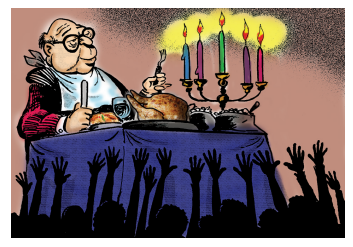
Three important theorists Vilfredo Pareto
(1848-1923), Gaetano Mosca (1857-1941) and Robert Michels
(1876-1936) are the leading thinkers of elitist democracy. Pareto classified
the elites into governing and non-governing elite from the masses. The
governing elite are the power elites who are the ruling classes. They derive
power from the variety of sources such as education, social status,
bureaucratic position, political connections, and wealth.
Pareto described the Elite qualities in two
psychological types (a) Foxes – who rule the masses by cunningness and
manipulate their consent, (b) Lions – who achieve power through domination,
coercion and violence. Elitism developed as a critique of egalitarian idea such
as democracy and socialism.
Robert Michels had an
alternative view about the democracy that even though the organization
tend to be democratic but the small group of dominant figures who can organize
and make decision rather than having deliberation with rank and file of the
organization and called it as ‘iron law of oligarchy’.
Joseph Alois Schumpeter (1883-1950)
proposed the concept of democratic elitism. Schumpeter defined that
democracy was a good political method to arrive at political, legislative and
administrative decisions by placing in certain individuals in power to decide
on all matters of the masses as a representative means and the result of
successful pursuit of people’s vote. Democracy paves way for competitive pursuit
means among the elites to achieve their legitimacy and power.
The Elitist theory partly accepts the Marxian view
of democracy that large corporations dominate in production and distribution of
goods, however it does not agree with Marxian class analysis. The democratic
Elitism theory engages with the groups and individuals to meet their endsand
facilitates with their disagreements so as to meet the ends of the both.
Pluralist Theory of Democracy
Pluralism is an inclusive concept. It addresses the
interests and rights and the representation of the minorities thus forming the
core content of liberal democracy. It affirms the separation of power from
state and civil society and also economy from the political power. It offers
the scope of institutions for the democratic process in the case of Legislature
known as Bicameralism and a form of governance namely Federalism to govern the
state through various set of representation. Pluralism paves way for
participatory democracy that enables diverse group participation, to protect
their rights. In this scheme, political power is distributed and shared to many
groups in the society representing diverse interests.
Pluralism leads to defend their particular
interests through government by creating ‘competitive equilibrium’ that intends
to benefit large sections of the society for the long run.
Pluralism suggests that democracy in the system
necessitates the conduct of regular elections that encourages political
competition among parties, groups and individuals. The thinkers of Utilitarian
school were the great advocates of pluralist democracy James Madison, John
Stuart
Mill and Tocqueville predicted that elections expresses the
preferences of divergent competitive groups rather than the wishes of many in
the majority group. This also provides the bargaining power to the minority
groups to assert their rights and share in power.
Pluralist democracy is also termed as Polyarchy,
which is a rule by series of minorities within the political framework.
Robert Dahl pointed out
that the very essence of democracy is realized by Polyarchy that
accommodates the presence of divergent groups, association, organizations in
large number to enjoy relative autonomy in governmental power and jurisdiction.
The preconditions for a functioning of polyarchy are consensus on the rule of
procedure, range of policy options and legitimate scope of political activity.
Later there was a revision in Robert Dahl’s
Theory, he forwarded the theory of “Deformed Polyarchy” to better
describe the working of American democracy.
Deliberative Theory of Democracy
Democracy is Deliberative in its scope. It
emphasizes on the form of democracy that emphasizes the need for deliberation,
discourse and debate that defines the public interest. Deliberation and participation
are two critical aspects of democracy. Deliberative democracy and participation
are usually strong in the grassroots level. India’s Panchayati Raj institutions
are usually strong in this process. Grass roots democracy features Panchayati
Raj Institutions and civil societies that strengthen the functioning of the
government. James Miller defines that deliberative democracy is built on the
system of deliberation that features that decisions are reflective of the
discussion among the participants. It features the willingness of the people to
listen to the views and consider the interests of the others modifying their
own opinions accordingly. Public interest and public opinion are the key
components of the deliberative democracy. It emphasizes on the consensus built
upon the acceptance from the masses rather than the influential individuals.
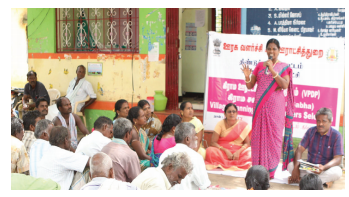
Deliberative democracy is usually based on a
rights-based approach of the current model of the development discourse. It
provides for resolution of the scope for conflicts of interest with the
democratic institutional mechanism balancing the benefits of the competing
groups.
Deliberative democracy is different from other
forms of democracy by maintaining a person is rational enough to set aside
particular interest and opinion to aspire for fairness and common interests of
the collective and deliberation was based on equality, equity, and public
goods. It values the decisions arrived after open discussion that heard all the
points of view the most. Deliberative democracy is ‘discursive’ in scope. It is
a type of democracy in which deliberation is central to decision making.
Deliberative democracy differs from traditional democratic theory in authentic
deliberation, not merely confined to voting. It is the primary source of
legitimacy for the law making processes.
![]()
![]()
Deliberative democracy is harmonious with both representative democracy and direct democracy. Rawls and Habermas famous theorists of justice and public opinion have observed that political choice, to be legitimate, must be the outcome of deliberation about ends among free, equal, and rational agents. Deliberative democracy recognises “the full and equal membership of all in the sovereign body responsible for authorizing the exercise of that power, and establishes the common reason and will of that body”.
Modern and Contemporary Democracy:
Modern and contemporary democracies emerged in the
late eighteen centuries in Western Europe as a result of industrial revolution,
rise of labour and the social changes that emerged. Modern and contemporary
democracies feature:
·
Written constitution the basic
requirements and it must be kept up in everyday life by politicians and
authorities:
·
Importance of Constitutionally
guaranteed basic Human Rights and fundamental rights to every individual of all
the social groups’ especially religious minorities and other underprivileged.
·
The Separation of Powers between
the institutions of the state:
·
Government (Executive Power),
Parliament (Legislative Power) and Courts of Law (Judicative Power)
·
Freedom of opinion, speech, press
and mass media
·
Religious liberty
·
General and equal right to vote
(one person, one vote) – Universal Adult
Suffrage
The “majority rule” is characterized as only
important features of democracy, however the process should have free and fair
competitive elections. Additionally, the importance of Rights is very important
viz: freedom of political expression, freedom of speech, and freedom of the
press are indispensable in the representative democracy and the masses are
informed through political campaign and the manifestoes of the political
parties enable to vote in their personal interests.
Democracies have been practiced by different models
of political system ranging from one party rule to multi-party system. In
several countries, democracy is based on the legal principle of equal rights to
vote. People in Asian and European countries use the term “democracy” as the
basic expression meaning for liberal democracy, which has the salient features
of political pluralism; equality before the law; civil liberties; human rights;
and elements of civil society outside the government. Freedom of speech is the
fundamental requirement of modern democracy.
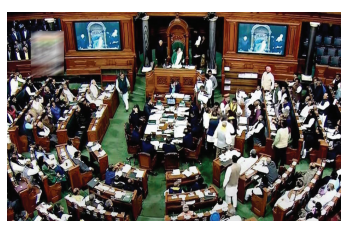
All democratically elected Governments are held
responsible by free speech, every decision must have a reason, accountable. The
free flow of information allows both people and governments to make the best
informed decisions. Democracy has been described or defined broadly as
·
Political System of Competition
for Power
·
Right to participation in public
life
·
The Rule of Law
Case Study
TALE OF TWO CARTOONS
APRIL REVOLUTION AND DEMOCRACY IN NEPAL
On April, 2006 the leaders of Nepal‘s vibrant pro -democracy civil society movement “Seven Party Alliance” (SPA) called for a million-strong demonstration to be staged at seven different points along the ring road encircling the capital Kathmandu. The millions of citizens who made up the people’s movement demanded a end to autocratic rule of monarchy and restoration of total democracy in the Himalayan Kingdom. An unprecedented development forced the King Gyanendra to step down and paved the way for democracy.
Case Study
HISTORIC TRANSITION IN BHUTAN
The fourth King of Bhutan, Jigme Singye Wangchuck travelled to all the 20 districts of the tiny Kingdom. The purpose of the travel is to explain the importance of historic transition to the people of Bhutan. Transition from the hereditary monarchy to the Parliamentary Democracy. In 2006, the King has abdicated the throne, 34 years after ascending it. His son Crown Prince Jigme Khesar Namgyel Wangchuck becomes the fifth monarch and head of State of the Himalayan Kingdom. Now Bhutan is a parliamentary democracy and King Jigeme a constitutional monarch
Discuss the salient features of April Revolution of Nepal and Voluntary transition of power in Bhutan. Discuss the key terms such as Hereditary Monarchy, Parliamentary Democracy, Monarchy, Autocracy and Democracy.
Related Topics